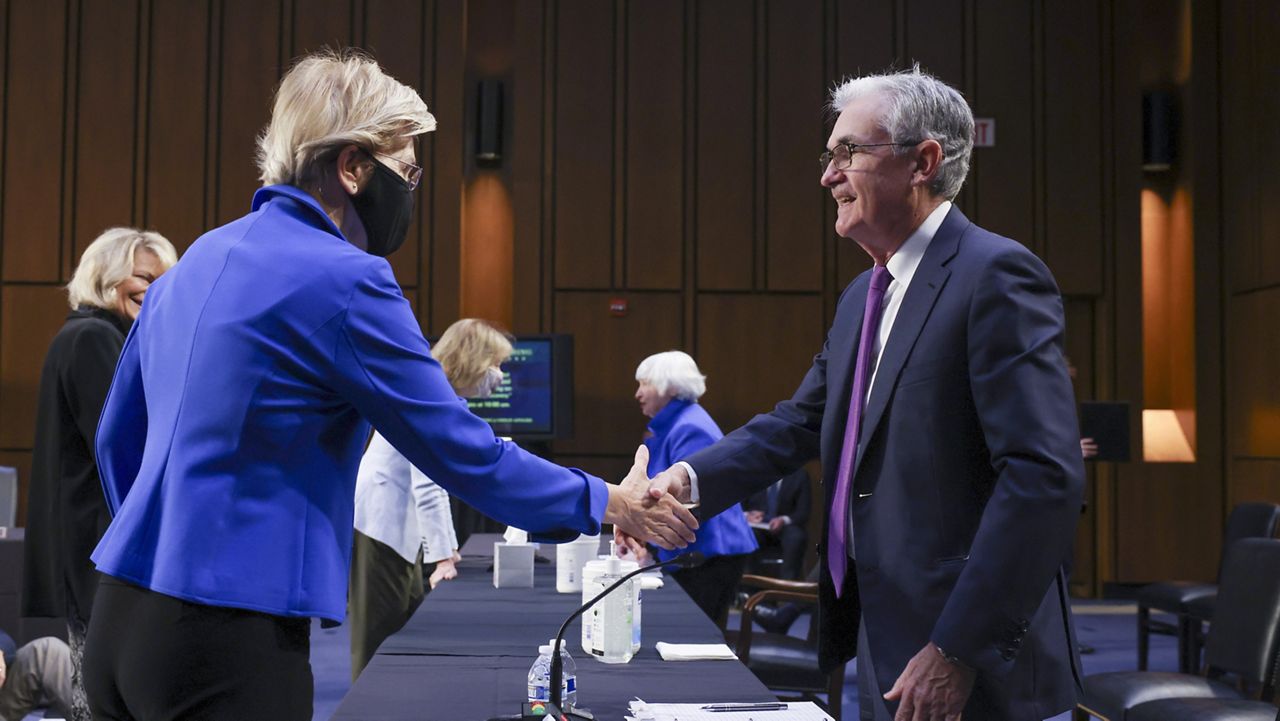In a hearing before the Senate Banking Committee on Tuesday, Massachusetts Sen. Elizabeth Warren called Federal Reserve Chairman Jerome Powell "a dangerous man" and pledged that she would oppose his re-nomination, claiming that he made the United States' banking system less safe.
"Your record gives me grave concerns," the former presidential candidate said of Powell. "Over and over, you have acted to make our banking system less safe, and that makes you a dangerous man to head up the Fed, and it’s why I will oppose your renomination."
Warren said that Powell has acted to weaken financial regulations that were enacted after the 2008 financial crisis.
“So far you’ve been lucky. But the 2008 crash shows what happens when the luck runs out,” Warren said. “The seeds of the 2008 crash were planted years in advance by major regulators like the Federal Reserve that refused to rein in big banks. I came to Washington after the 2008 crash to make sure nothing like that would ever happen again.”
Powell did not respond to Warren's comment about his nomination. Powell’s current term ends in February.
When asked on Tuesday if the administration had any comment on Warren's criticisms of Powell, White House press secretary Jen Psaki said: "I understand the interest. I don't have anything on personnel announcements to make, and nothing further on Sen. Warren's comments."
Warren is hardly the only progressive lawmaker to raise concerns over Powell's record.
In a letter released in early September, a group of progressive House Democrats encouraged the president to “re-imagine a Federal Reserve focused on eliminating climate risk and advancing racial and economic justice" by selecting a new person to lead the Federal Reserve instead of reappointing Powell next year.
Reps. Alexandria Ocasio-Cortez, D-N.Y., Rashida Tlaib, D-Mich., Ayanna Pressley, D-Ohio, Mondaire Jones, D-N.Y. and Jesús G. “Chuy” García, D-Ill., went on to cite similar concerns to those mentioned by Warren. The group expressed concern that Powell had “substantially weakened many of the reforms enacted in the wake of the Great Recession,” in part by changing the Volcker Rule, which prevents banks from using taxpayer-insured deposits to make risky trades or investments on Wall Street. The rule was enacted in the wake of the 2008 financial crisis.
Powell twice eased the rule’s restrictions, first by offering more exemptions to short-term trading holdings, and a subsequent change allowing banks to invest more of their assets into high-risk trades and/or hedge funds.
Powell also came under fire Tuesday from some Republicans on the Senate Banking Committee over high and growing costs for gasoline, food and other goods and services. Annual inflation, according to the Fed’s preferred gauge, reached 4.2% in July, the highest in three decades.
Sen. Pat Toomey, R-Penn., noted that inflation is broadening beyond categories that were upended by the pandemic, such as used cars, and asserted that it has not been just a temporary spike as Powell and some other Fed officials have suggested.
“We need to acknowledge that this is not playing out the way the Fed has hoped,” Toomey said.
Powell agreed that inflation pressures have intensified as supply chain disruptions have persisted and in some cases worsened. But he argued that high inflation is still being driven mainly by a limited number of factors that were worsened by the pandemic, such as hotel rooms, rental cars, and airplane tickets.
The Associated Press contributed to this report.



